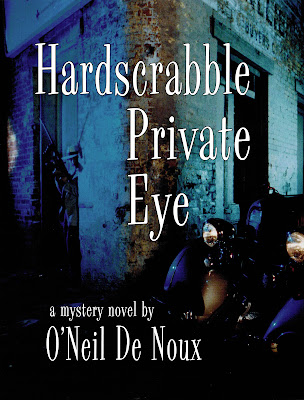With the release of my latest book, I thought it might be time to revisit my first SleuthSayers article – Writing the Historical Mystery. Since the article aired in September 2016, I have had five historical mystery novels and fifteen historical mystery short stories published.
In writing academic historical articles, I strive to be as accurate as humanly possible. Nearly all history graduate students take a class in HISTORIOGRAPHY, the study of historical writing. They know unless you are an eye-witness to an historical event – and that’s one person’s subjective observation – then you must rely on first hand accounts of other contemporary witnesses or second hand accounts complied by other historians. So why worry if you get a minor detail wrong in your historical fiction as I did when I had a character wearing a Banlon shirt several years before Banlon was introduced? Oh, yes. Someone caught me and I had to miss recess that day. Same thing happened when I put a Parker T-ball jotter in a private eye's hand a few years before Parker distributed the pen. Wrong. An easy fix.
“ … fairness is not the historical novelist’s first duty,” the great historical fiction writer Bernard Cornwell pens in his notes at the end of Sword Song (2008). He is correct, of course. The duty of an historical novelist is to entertain, to elicit emotion in the reader and if mistakes of fact are made (from errors in research, by omission or by design), well, it happens.


Nice article. It is said that history is written by the winner. And, as you said, the facts are also perceived differently by different cultures. For my 9 Tales of the Golden Triangle, my Chinese historian neighbor did some research for me in Mandarin, and some of the Chinese facts are different from the Anglo facts. Makes for interesting writing.
ReplyDeleteAbsolutely - the British and Chinese views of the Opium Wars are completely opposite. And minor historical inaccuracies are forgiveable. Granted, Genghis Khan shouldn't be wearing a Rolex, but... Unless he's time-traveling. And then, fiction is fiction!
ReplyDeleteI had a reader point out that a car I described in a historical novel was not produced in the year I claimed. Did my mistake change the course of the novel? Nope. Did it irritate a reader (and perhaps others who never said anything) to the point of them wondering what else I got wrong in the book? Perhaps. Did I lose them as a future reader? Who knows. Unless I really need to be loose with facts for purposes of story, I try hard to avoid avoidable errors.
ReplyDeleteThanks for the comments. Eve – Genghis Khan did not wear a Rolex, that was Kubla Khan. Genghis wore a Seiko.
ReplyDeleteGood one, O'Neil!
ReplyDelete